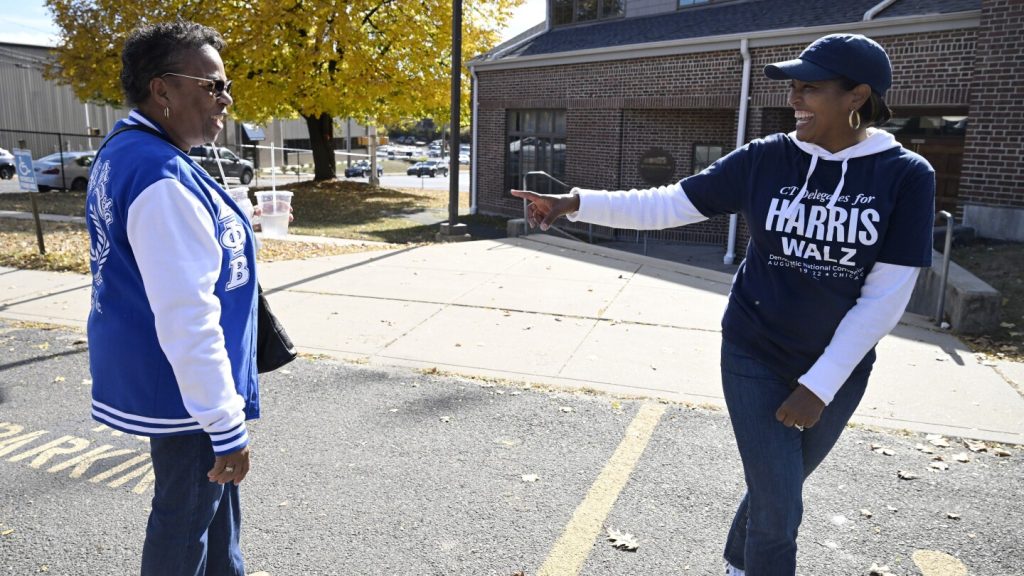Throughout her reelection campaign, U.S. Rep. Jahana Hayes, the first Black woman to represent Connecticut in Congress, has received support from members of historically Black sororities and fraternities known as the “Divine Nine.” While Hayes is not a member herself, volunteers from these organizations have shown up to call voters, organize fundraisers, knock on doors, and offer pro bono legal help. This surge in support is attributed to Kamala Harris’ presidential run, as the vice president is a longtime member of Alpha Kappa Alpha Sorority Inc.
The National Pan-Hellenic Council, comprised of the nine historically Black sororities and fraternities, is nonpartisan and cannot endorse candidates due to their nonprofit status. However, many individual members have been actively involved in federal and state races, inspired by the “Kamala Harris effect.” Recent activities include a get-out-the-vote bus tour through several states to support Black women candidates, including Democratic U.S. Senate candidate Angela Alsobrooks and U.S. Rep. Lisa Blunt Rochester. If elected, these women could make history by being the first two Black women to serve in the Senate simultaneously.
Members of Alpha Kappa Alpha, Delta Sigma Theta, and other Divine Nine organizations have been campaigning for candidates like Jahana Hayes, emphasizing the importance of having allies in Congress to support Kamala Harris. Despite efforts from former Republican George Logan to court Black voters, D9 members have not shown significant support for him. The final days of the election see both Harris and former President Donald Trump courting Black voters, with concerns about voter turnout among Black men and party affiliation among Black Americans.
Efforts from the sororities and fraternities, in addition to individual mobilization, are seen as potentially impactful in the upcoming races. Darren Davis, a political science professor, notes the ability of D9 organizations to reach and mobilize disaffected voters in local and statewide elections where the Black vote is more powerful. These organizations have a long history of promoting civic engagement, community service, and personal achievement, serving as training grounds for future civil rights leaders like Martin Luther King Jr. and Rosa Parks.
Individual members like Brandon McGee, a member of Alpha Phi Alpha Fraternity Inc., are excited about supporting female candidates like Kamala Harris and Jahana Hayes, especially as fathers of daughters. McGee sees this as an opportunity to show his children that they can also aspire to leadership roles. The impact of these organizations on the electoral landscape showcases how Black Greek organizations continue to play a significant role in mobilizing voters and supporting Black candidates in key races across the country.


